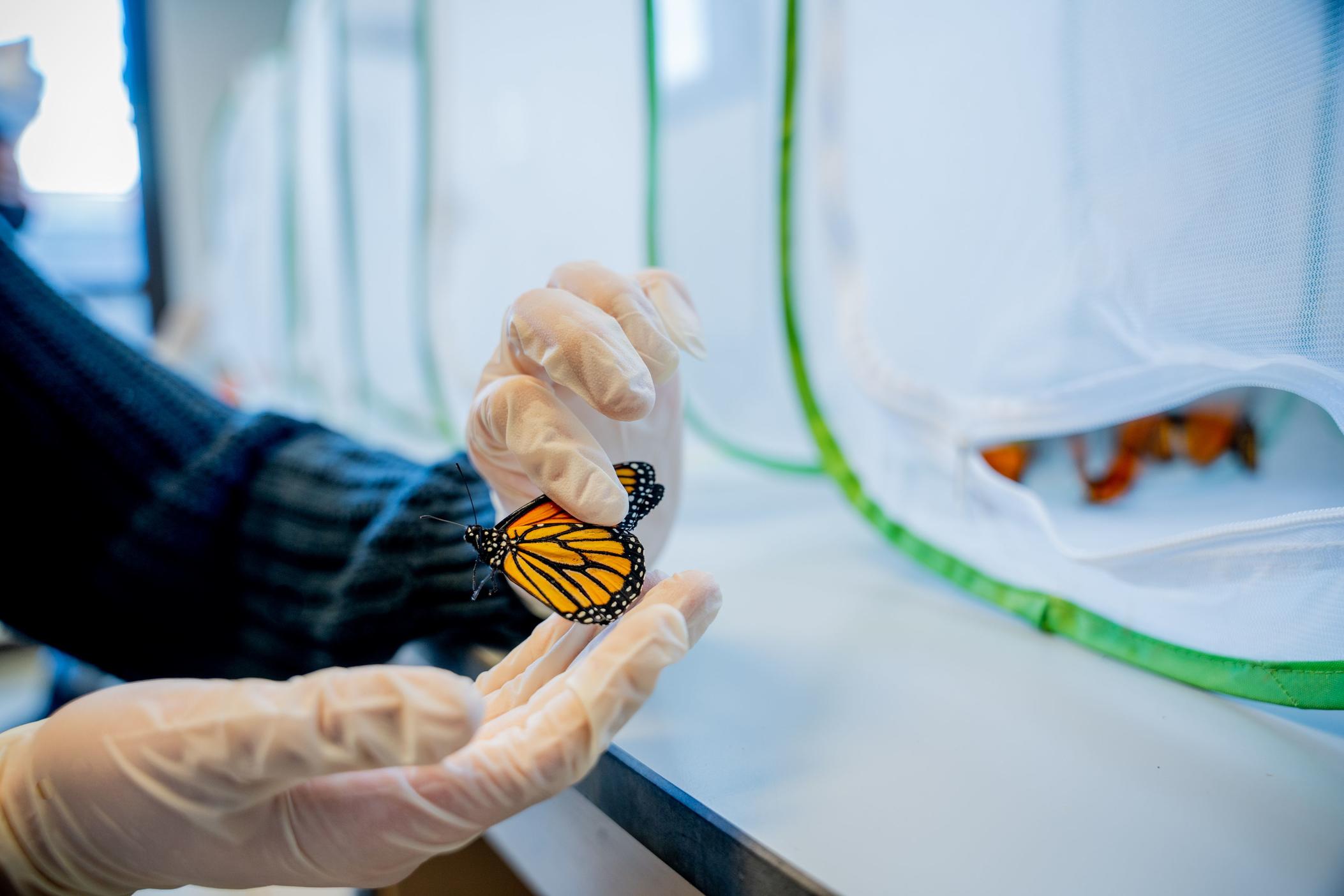Section Branding
Header Content
Scientists want you to report monarch butterfly sightings this winter
Primary Content
As millions of monarch butterflies make their way toward Mexico for the winter, butterfly scientists want those in their flight path to report monarch sightings. That includes people in Georgia. Doing so can help these scientists answer critical questions about seasonal behavioral changes.
Last year, the migratory monarch was classified as an endangered species.
“We could be losing this migration pattern,” said Susan Meyers, volunteer with Monarchs Across Georgia.
Although monarchs have been migrating thousands of miles south during the winter for centuries, and the majority still do, more monarchs are staying in the southern U.S. during the winter as it gets warmer.
“We don't want them here during the winter,” Meyers said.
Because many of the butterflies that stick around end up reproducing when they’re not supposed to, largely due to the prevalence of non-native milkweed. Monarchs rely on milkweed as a food source and as a place to lay their eggs, and non-native varieties are less likely to die off during the winter.
More butterflies might sound like a good thing. But Sonia Altizer with the University of Georgia’s Odum School of Ecology and Project Monarch Health has evidence that winter breeding actually puts monarch populations at risk.
“The winter breeding behaviors are actually amplifying or accelerating the transmission of this debilitating parasite that infects monarchs,” Altizer said.
The protozoan parasite is called Ophryocystis elektroscirrha. Altizer’s research shows as much as 100% transmission of OE in some winter breeding colonies along the coast of Texas and Florida. It first infects adult butterflies, then caterpillars, and so on.
“They tend to have wing deformities," Altizer said. "They live shorter as adults and they migrate less well."
On the other hand, there has been evidence of some winter monarch colonies that miss their migration but also instinctually enter sexual diapause, a delay in reproduction function due to environmental conditions such as climate, like normal. Altizer is specifically interested in learning more about these groups.
“It's this coastal overwintering that I think is super interesting and could be really important for monarch conservation and the persistence of monarch migration,” said Altizer.
Because these monarchs actually have less transmission of protozoan OE than some populations that do make it Mexico, promoting healthy populations for spring breeding and hopefully, future migration.
“I think places like Georgia and neighboring states are going to become increasingly important, and we need to pay attention to what's happening to monarchs here and monarch habitats here,” Altizer said.
Meyers said it’s also important to pay attention when reporting a monarch sighting this winter.
“Are they just resting or roosting?" Meyers said. "Are they drinking nectar from flowers? Or are you seeing them mating?”
The biggest takeaway for monarch enthusiasts? Stop planting non-native milkweed.
“We want people to build habitat for monarchs and for pollinators, but that should be in the spring, summer and fall,” Meyers said.
Monarch sightings can reported through Journey North while parasite testing kits are available through UGA’s Project Monarch Health.


